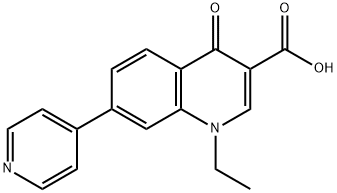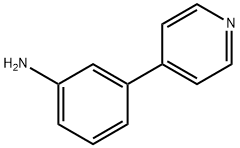Definition
ChEBI: A quinolinemonocarboxylic acid that is 1,4-dihydroquinoline-3-carboxylic acid that is substituted by an ethyl group at position 1 and by a pyridin-4-yl group at position 7. An antibacterial drug, active against Neisseria gonorrhoeae, it has be
n used for treating urinary tract infections and certain sexually transmitted diseases.
Pharmacokinetics
A single oral dose of 300 mg produces a mean peak plasma concentration of 4–5 mg/L at about 2–4 h, with an apparent elimination half-life of about 6 h. Elimination in the urine is partly as the N-oxide metabolite and the glucuronide of this metabolite.
Side effects are those common to quinolones, notably gastrointestinal tract and CNS disturbances. About 50% of patients treated with single oral doses of 100–400 mg developed dizziness, drowsiness, altered visual perception and other CNS effects.
It is effective as single-dose treatment of patients with urethral and anorectal gonorrhea, but coexistent C. trachomatis infection is not eliminated from most patients and postgonococcal urethritis develops in up to 30%.



